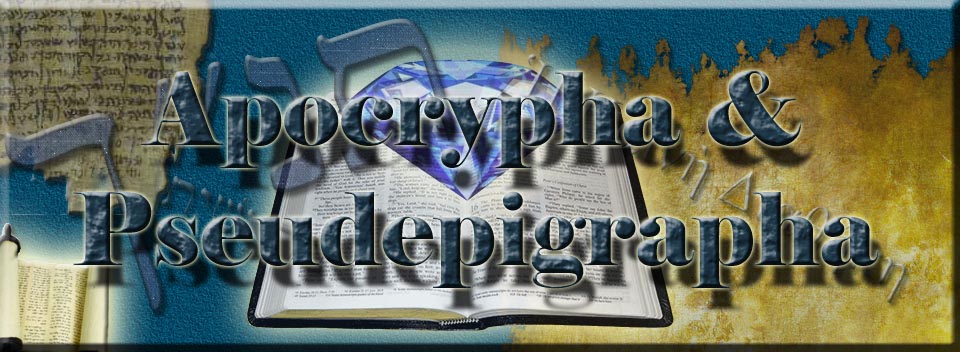
New Testament
Apocrypha* & Pseudepigrapha**
Also Known As The Noncanonical Literature***
The Traditions of MatthiasClement of Alexandria, Stromata 2.9.45.4 But the begining of this is to marvel at things, as Plato says in the Theatetus and as Matthias says in the Traditions when he urges, "Marvel at what is present," laying this down as the first step toward the knowledge of things beyond. Clement of Alexandria, Stromata 3.4.26.3 They say that Matthias also taught this: "To fight with the flesh and misuse it, without yielding to it through undisciplined pleasure, so to increase the soul through faith and knowledge." Clement of Alexandria, Stromata 4.6.35.2 So Zaccheus whom they call Matthias, the chief tax collector, when he had heard that the Lord had esteemed him highly enough to be with him, said, "Behold, half of my present possessions I give as alms, and Lord, if I ever extorted money from anyone in any way, I return it fourfold." At this the savior said, "When the son of man came today, he found that which was lost." Clement of Alexandria, Stromata 7.13.82.1 They say that Matthias the apostle in the Traditions says at every opportunity, "If the neighbor of an elect person sins, the elect person sins. For if he had led himself as the word dictates, the neighbor would have been in awe of his life so that he did not sin." |
|
* Apocrypha - (from the Greek word απόκρυφα meaning "those having been hidden away") are texts of uncertain authenticity or writings where the authorship is questioned. These texts may have been used in some churches by were never considered as part of the Bible ** Pseudepigrapha = (from Greek pseudes = "false", "epigraphe" = "inscription") are texts falsely attributed to biblical characters or times. These books were never part of the Bible & were never considered as scripture by the church at any time despite being published under such titles of "The Lost Books of the Bible" or "The Hidden Gospels". The church has always known about them & they were never "Hidden" & could be read at any University or college. There is no deep dark secret here, just publishers trying to make a buck with interesting book titles. *** Noncanonical Literature = Never part of the Canon or Bible. |
-
Site Navigation
 Home
Home What's New
What's New Bible
Bible Photos
Photos Hiking
Hiking E-Books
E-Books Genealogy
Genealogy Profile
Free Plug-ins You May Need
Profile
Free Plug-ins You May Need
 Get Java
Get Java.png) Get Flash
Get Flash Get 7-Zip
Get 7-Zip Get Acrobat Reader
Get Acrobat Reader Get TheWORD
Get TheWORD